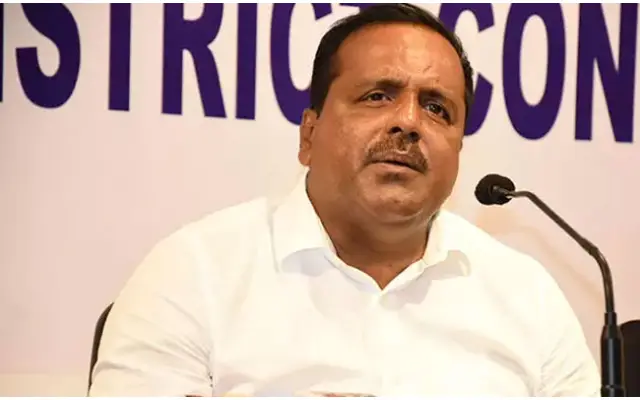Mangaluru, June 14: U T Khader, the Speaker of the Karnataka Legislative Assembly, outlined several new infrastructure projects focused on drinking water facilities, electrification, and road expansion in the Mangaluru (Ullal) constituency.
Ad

During a press conference at Circuit House, Khader emphasized his commitment to providing essential resources for the constituency. “During the elections, I promised the people that my priority would be providing drinking water facilities for everyone in the Ullal constituency. Water is a crucial resource for human life, and this issue must be addressed regardless of who is in power,” he stated.
Previously, Ullal relied on water from the Thumbe dam with additional pipelines, but these were inadequate. Khader detailed plans for a separate water source for Sajipa and Konaje, with the first phase already completed, including a new 70-lakh litre water tank. A total of Rs 249 crore has been allocated for these projects, with Rs 180 crore for the pipeline from Konaje to Mudipu, and Rs 193 crore for Ullal, Kotekar, and Someshwar.
Additionally, road expansion projects are in progress, with grants for roads from Thokkottu to Mudipu and the construction of a six-lane route costing Rs 25 crore. “This work will commence as soon as possible,” Khader confirmed. An extra Rs 50 crore has been reserved for emergency purposes.
Electrification projects include creating new subdivisions to manage higher loads, with plans to merge 33 kV subdivisions with 110 kV subdivisions. Khader also announced the upcoming construction of Abbaka Bhavan and Byari Bhavan.
Addressing issues in flood-prone areas, Khader acknowledged the unpredictable nature of ocean waves in Mangaluru, stressing the importance of regular maintenance. “The government should ensure funds are provided at least once every two years for maintenance,” he noted, highlighting the need for a proactive approach similar to Mumbai’s Marine Drive.
When questioned about flood relief funds, Khader emphasized the need for immediate inspections and relocation of people from dangerous areas. He criticized the focus on legalities over practical assistance, calling for better coordination between the district commissioner and the port department.

